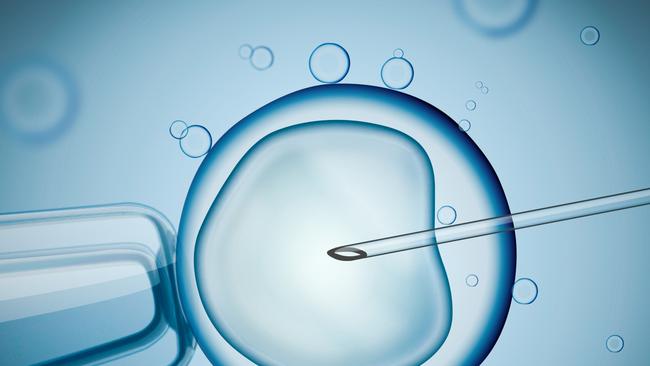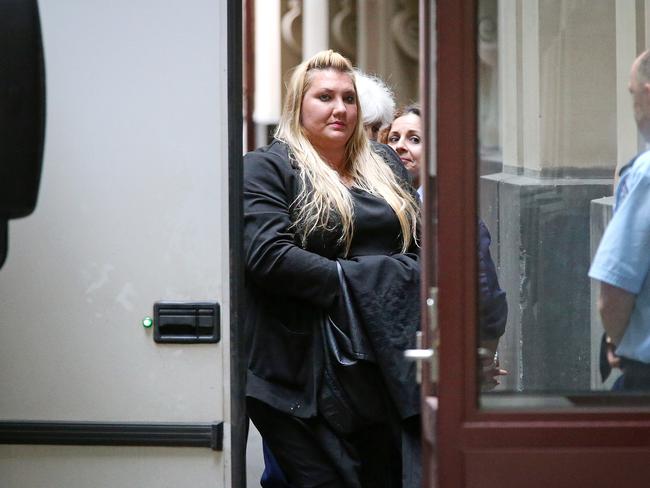Qld drug trafficker fails in court bid to freeze her eggs
A Queensland drug trafficker has made an attempt through the courts to have her eggs frozen, just days after a Victorian prisoner was given the green light to have IVF treatment and give birth in jail.

Police & Courts
Don't miss out on the headlines from Police & Courts. Followed categories will be added to My News.
Days after a Victorian prisoner was given the green light to have IVF treatment and give birth in jail, a Queensland court has knocked back a drug trafficker’s bid to freeze her eggs.
Drug trafficker Rachel Smith will likely appeal the decision handed down on Wednesday when Supreme Court Justice Tom Sullivan threw out her application to undergo the medical procedure during her decade-long prison term.
Ms Smith described as the “architect” and “the brains” of a $1m drug ring, is 33 years old and is due for release aged 41 if she serves her full term.
She lived in a luxury Hamilton home and drove a Mercedes while selling drugs in 2019.
She took her appeal to the Supreme Court after the chief executive of Queensland Corrective Services knocked back her application for egg freezing
She claimed the refusal was a breach of her human rights, and said she plans to have the eggs fertilised and implanted after she leaves prison in 2031, the decision states.
The freezing treatment was expected to be “privately funded”, the decision states.
Justice Sullivan concluded that the state’s Corrective Services Act bans Ms Smith from applying for access to medical examinations and treatment for the extraction and freezing of her eggs.
Under the heading “private medical examination or treatment” the Act bans “assisted reproductive technology”.

Justice Sullivan concluded that egg freezing is assisted reproductive technology (ART).
He ruled that the ban also “avoids the possibility of prisoners … causing a person outside of prison to use the extracted and frozen egg to bear a child”.
Ms Smith’s lawyers unsuccessfully argued that this was not the case, and it was only processes that involve conception of a foetus constitute assisted reproductive technology.
Her lawyers argued that the Act was not intended “to inhibit the ability of a female to have children after she was released from incarceration”.
The most common requests by prisoners for access to assisted reproductive technology was by men asking for access to artificial insemination, according to the explanatory memorandum for the Bill, the decision states.
Medical evidence filed in the case, which was heard on July 25, established that women’s fertility reduces between the ages of 33 to 35 and then 39 to 41.
It also establishes that the risk of chromosomal abnormalities in the baby increases.
The Queensland court ruling comes after Victorian murderer Alicia Schiller was granted approval to leave her maximum-security prison to have IVF while serving a 16-year sentence for repeatedly stabbing and ultimately killing housemate and mother of three Tyrelle Evertsen-Mostert.
If granted parole Ms Smith could be released aged 39.
Justice Sullivan said that the egg freezing process was ART because it was a multi-step process involving hormones, medical examinations, blood tests and ultrasounds.
“Specific hormonal drugs are used to stimulate the production of multiple follicles within a female’s ovaries,” the decision states.
“A later drug is then used to stop the follicles produced from ovulating. A third drug is then used to initiate the final process of egg maturation.
“During the period over which these three drugs are administered, daily medical examinations will take place in order to monitor the ovaries by means of blood tests and ultrasounds.
“Those will generally occur over a period of 9 to 12 days. The extraction process is a medical procedure performed under a general anaesthetic or some other form of sedation,” the decision states.
Ms Smith’s lawyer Andrew Owens said his client was considering an appeal.


